Related Research Articles
The United States has more teaching hospitals than any other country in the world.
The Association of American Medical Colleges (AAMC) is a nonprofit organization based in Washington, D.C. that was established in 1876. It represents medical schools, teaching hospitals, and academic and scientific societies, while providing services to its member institutions that include data from medical, education, and health studies, as well as consulting. The AAMC administers the Medical College Admission Test and operates the American Medical College Application Service and the Electronic Residency Application Service. Along with the American Medical Association (AMA), the AAMC co-sponsors the Liaison Committee on Medical Education (LCME), the accrediting body for all U.S. MD-granting medical education programs.
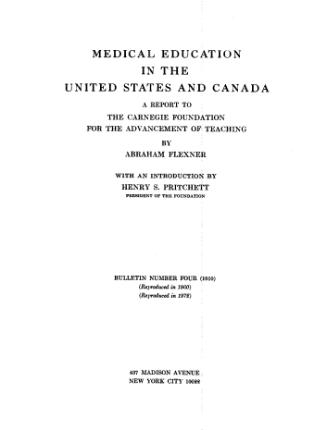
The Flexner Report is a book-length landmark report of medical education in the United States and Canada, written by Abraham Flexner and published in 1910 under the aegis of the Carnegie Foundation. Many aspects of the present-day American medical profession stem from the Flexner Report and its aftermath. The Flexner report has been criticized for introducing policies that encouraged systemic racism.

Abraham Flexner was an American educator, best known for his role in the 20th century reform of medical and higher education in the United States and Canada.

William Henry Welch was an American physician, pathologist, bacteriologist, and medical-school administrator. He was one of the "Big Four" founding professors at the Johns Hopkins Hospital. He was the first dean of the Johns Hopkins School of Medicine and was also the founder of the Johns Hopkins School of Hygiene and Public Health, the first school of public health in the country. Welch was more known for his cogent summations of current scientific work, than his own scientific research. The Johns Hopkins medical school library is also named after Welch. In his lifetime, he was called the "Dean of American Medicine" and received various awards and honors throughout his lifetime and posthumously.

Susan Maria McKinney Steward was an American physician and author. She was the third African-American woman to earn a medical degree, and the first in New York state.

Clarence Sumner Janifer Sr. was a physician and the first African American member of the Medical Society of New Jersey.

Leonidas Harris Berry was an American and pioneer in gastroscopy and endoscopy. He served as the president of the National Medical Association from 1965 to 1966.
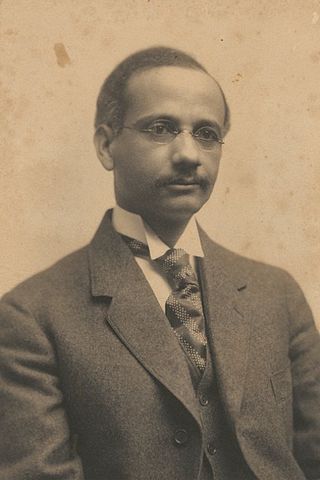
Solomon Carter Fuller was a pioneering Liberian neurologist, psychiatrist, pathologist, and professor. Born in Monrovia, Liberia, he completed his college education and medical degree (MD) in the United States. He studied psychiatry in Munich, Germany, then returned to the United States, where he worked for much of his career at Westborough State Hospital in Westborough, Massachusetts.
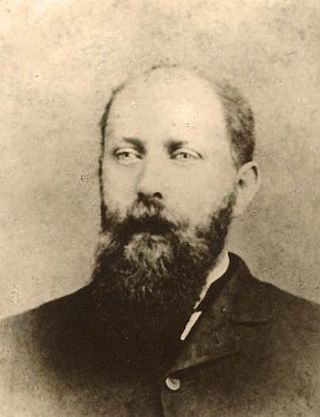
Alonzo Clifton McClennan was an African-American medical doctor who was the co-founder of the Charleston Hospital and Training School for Nurses in Charleston, South Carolina, established to provide for the education of black nurses, care of black patients, and hospital privileges for black doctors. It opened in 1897. McClennan had gone to medical school after being the second African American appointed as a midshipman to United States Naval Academy. He resigned in order to go directly into medicine. Graduating with medical and pharmacy degrees, he married and settled in Charleston, South Carolina, where he set up his medical practice.
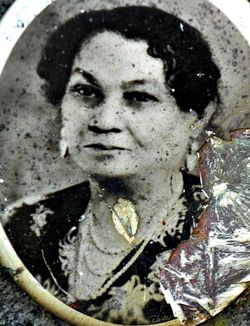
Beebe Steven Lynk (1872–1948) served as the professor of medical Latin botany and materia medica at the University of West Tennessee. She was an active member of the early black women's club movement, authoring a book, Advice to Colored Women in 1896.
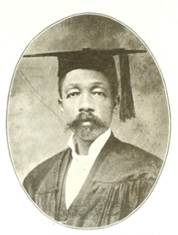
Miles Vandahurst Lynk was an American physician and author noted for his efforts to create opportunities for African Americans in science, specifically for medical doctors. He was known both as the founder, editor and publisher of Medical and Surgical Observer, as well as founding the University of West Tennessee College of Medicine and Surgery.
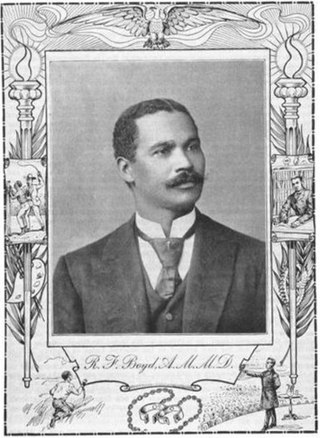
Robert Fulton Boyd was an African-American medical doctor, professor, politician, and one of the co-founders of the National Medical Association, serving as its first president between 1895-1898. He also researched the effects of racial segregation in healthcare.
Clara Arena Brawner was the only African-American woman physician in Memphis, Tennessee, in the mid-1950s.

Louisville National Medical College (1888–1912), was a historically Black medical school in the United States, located in Louisville, Kentucky. At the time it was founded, there were four other medical schools in Louisville. The first graduate of the medical school was a woman.
José Antonio Price (1890–1951) was a prominent Afro-Panamanian physician and Liberal politician who graduated from University of West Tennessee College of Medicine and Surgery in 1913. Price is regarded as the first black Panamanian to hold a medical degree in republican Panama.

The John A. Andrew Memorial Hospital was a teaching hospital on the campus of the Tuskegee Institute in Tuskegee, Alabama, open from 1892 to 1987. It was named for abolitionist Massachusetts Governor John A. Andrew (1818–1867), a main force in the creation of negro troops in the U.S.

Numa P. G. Adams was a dean at Howard University College of Medicine from 1929 until his death, in 1940. He was the first African American to hold the position of dean of the College of Medicine at Howard University.
Merceline Dahl-Regis, CMG OD, is a Bahamian physician and public health expert. She is the former Chief Medical Officer of the Bahamas and has been recognized for her role in advancing public health in the Caribbean and internationally.

A teaching hospital is a hospital or medical centre that provides medical education and training to future and current health professionals. Teaching hospitals are almost always affiliated with one or more universities and are often co-located with medical schools.
References
- ↑ Harley, Earl H. (3 May 2017). "The forgotten history of defunct black medical schools in the 19th and 20th centuries and the impact of the Flexner Report". Journal of the National Medical Association. 98 (9): 1425–1429. ISSN 0027-9684. PMC 2569729 . PMID 17019907.
- ↑ Savitt, Todd (2007). Race And Medicine in Nineteenth-and Early-Twentieth-Century America (1 ed.). The Kent State University Press. pp. 345–348. ISBN 9780873388788.
- ↑ Savitt, Todd (3 May 2017). "Abraham Flexner and the black medical schools. 1992". Journal of the National Medical Association. 98 (9): 1415–1424. ISSN 0027-9684. PMC 2569717 . PMID 17019906.